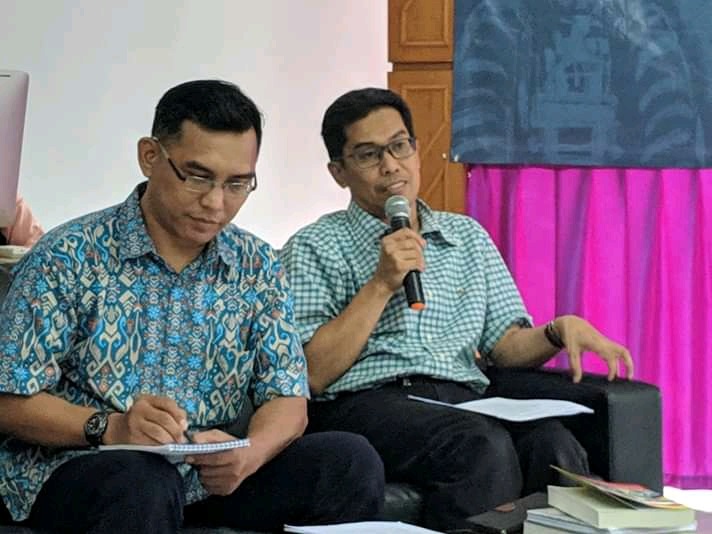UNAIR NEWS – Halalbihalal is an Indonesian custom. Halalbihalal tradition has existed since the Dutch colonial. Quoted from historia.id that halalbihalal tradition already existed at Surakarta in 1935.
Dr. Sarkawi B. Husain S, a lecturer of Historical Studies Program, Faculty of Humanity (FIB) Universitas Airlangga shared a story about halalbihalal tradition in his hometown in Sulawesi. The author of “Sejarah Masyarakat Islam Indonesia” told that halalbihalal in each place had its uniqueness.
Sarkawi explained that halalbihalal in Sulawesi does not recognize a tradition called “kupatan.” Halalbihalal in Sulawesi emphasizes more about visiting relatives and friend between family and neighborhood.
“Uniquely, halalbihalal tradition in my hometown is done for seven days,” he said.
Halalbihalal in various places has a similar custom called sungkeman (asking for blessing and forgiveness) to parents. It cannot be separated as a part of Eid-Al-Fitr. This asking forgiveness in halalbihalal can strengthen ties between families and communities.
Imam or religious leader would be the busiest man in Lebaran because he should prepare his house to be visited for seven days by families, neighbors, and other relatives.
“My father was an imam in my village, and it made me busy with preparation to welcome the guests for seven days,” he said.
Before Eid day comes, people in Sulawesi do a tradition called mappasilele; it means to give some foods to families and neighbors and the plates used for serving should be returned with some food as well.
Another particular thing in halalbihalal in Sulawesi, the children will not get some money, but they get food. The dishes that always brought by children is “kacang atom” and Jahat Rice or Lemang Rice as a special dish served during Eid day.
In its development, the tradition in the community began to disappear. Sarkawi added the attitude of a more individualist society made the tradition fade. However, halalbihalal is a moment that can restore and strengthen ties between people.
Author: Aditya Novrian
Editor: Binti Q. Masruroh





